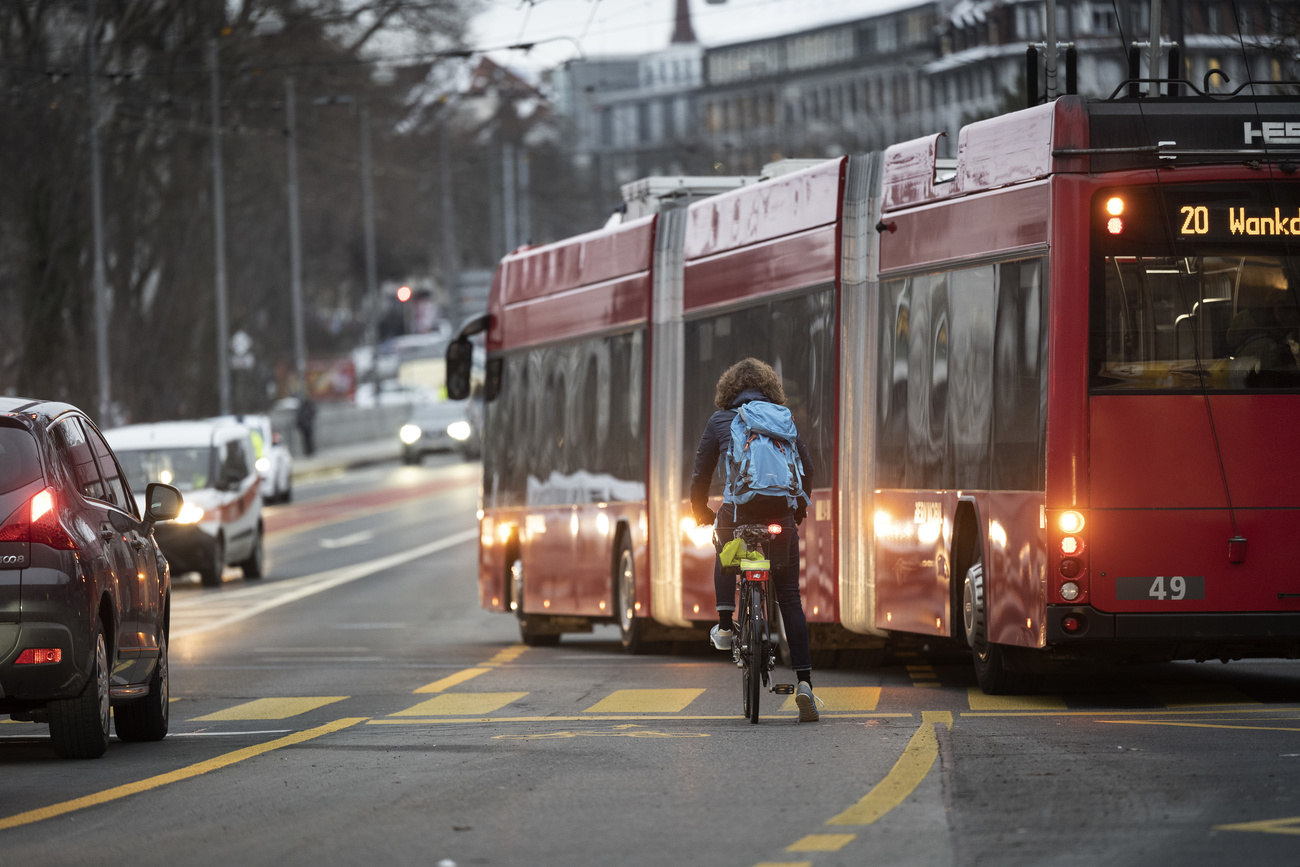
Half of Swiss people drive to work

Commuters in Switzerland travelled an average of 14km to work in 2022, a fairly stable figure. But more and more are travelling to another canton. Half use the car, 29% public transport and 18% walk or cycle.
Of the country’s 3.6 million commuters, 71% worked outside their municipality. This is considerably more than in 1990, when only 58% of commuters worked outside their home town. According to the latest figures from the Federal Statistical Office (FSO), published on Friday, 19.4% of commuters cross cantonal borders, almost twice as many as 30 years ago.
Half of all commuters (50%) use the car as their main means of transport to get to work. This proportion has fallen very slightly over the past 20 years. In terms of public transport, the FSO figures show a very slight increase: 16% (11.2% in 1990) of commuters use the train, and 13% (16.9% in 1990) use the bus.
+ How telework is reshaping residential neighbourhoods
In terms of soft mobility, 9% of people walk to work, slightly fewer than in 1990, and 7% cycle, a proportion that has hardly changed. On the other hand, electric bicycles are making steady progress, rising from 1.5% in 2020, the first year for which statistics are available for this mode of transport, to 1.9% in 2022.
Commuters travel an average of 13.7 kilometres to work and take an average of 30 minutes.
This news story has been written and carefully fact-checked by an external editorial team. At SWI swissinfo.ch we select the most relevant news for an international audience and use automatic translation tools such as DeepL to translate it into English. Providing you with automatically translated news gives us the time to write more in-depth articles. You can find them here.
If you want to know more about how we work, have a look here, and if you have feedback on this news story please write to english@swissinfo.ch.

In compliance with the JTI standards
More: SWI swissinfo.ch certified by the Journalism Trust Initiative






























You can find an overview of ongoing debates with our journalists here . Please join us!
If you want to start a conversation about a topic raised in this article or want to report factual errors, email us at english@swissinfo.ch.